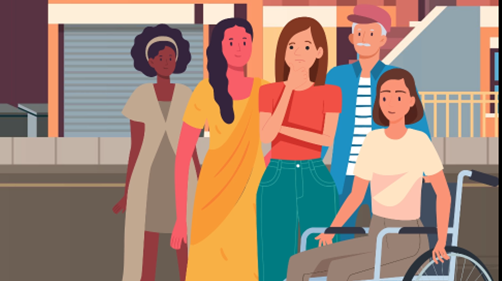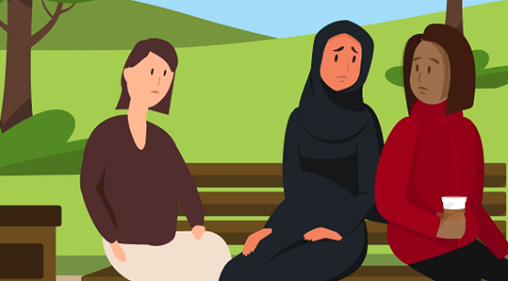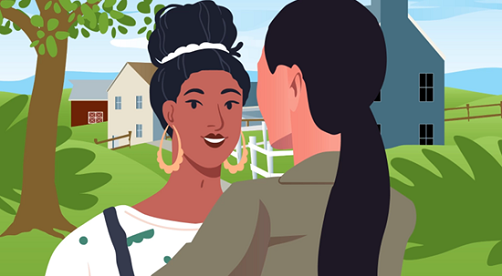Offering Support
Call 211or visit 211's website for resources near you, or to connect with the Men's, Women's, or All Genders helplines.
You may be a neighbour, friend or family member. Maybe you are a co-worker, have a client, or are a coach or teacher. You may be a trusted individual who can offer support to someone experiencing domestic violence. There are ways you can help.
You may think that if someone you know is living with domestic violence that it isn’t any of your business. That isn't true. Violence is everyone's business and it could be a matter of life or death. You may feel that you don't know what to say, but often just saying that you care and are concerned is a good way to start. You might be afraid that if you get involved you will make things worse or that the violence will turn to you or your family. You might be afraid she will get mad at you but, even if she does, it’s important that she knows you care and that she’s not alone.
Some professionals and volunteers are trained to notice signs that domestic violence is happening in the household. These signs may be noticed from a distance, or someone might tell you what's happening. Local police forces have people trained in these matters, so let them know if you receive threats.
If this happens it is helpful to know what to do, who can help, and what your legal obligations might be. In this section you will find information on what resources are available and how you can play your part in preventing domestic violence.
Ways to help:
- Talk to her about what you see and assure her that you are concerned. Tell her you believe her and that it is not her fault.
- Encourage her not to confront her partner if she is planning to leave. Her safety must be protected.
- Offer to provide childcare while she seeks help.
- Offer your home as a safe haven to her, her children and pets. If she accepts your offer, do not let her partner in.
- Encourage her to pack a small bag with important items and keep it stored at your home in case she needs it.
- Know that you or she can call the Assaulted Women’s Helpline, your local shelter, or, in an emergency, the police.
If she denies the abuse:
- Assure her she can talk to you any time.
- Don’t become angry or frustrated with her decisions. It is important to understand that she may be afraid or not ready to take the next steps.
- Try to understand why she might be having difficulty getting help. She may feel ashamed.
- Offer to go with her if she needs additional information or support.
- If she has children, let her know gently that you are concerned about her and her children’s safety and emotional well-being. She may be more willing to recognize her situation if she recognizes her children may also be in danger.
Domestic violence is everyone’s concern.
Click on the images below to watch the Neighbours, Friends, and Families videos.
Videos will open in a new window.
We can all help end domestic violence
Warning signs of domestic violence
The following 3 brochures have been adapted for Nova Scotia:
How to help someone who has an abusive partner (PDF)
Comment aider une personne dont la ou le partenaire est violent? (PDF)
Safety planning for women who are abused (PDF)
Planification de la sécurité (PDF)
How to talk to someone who is abusive (PDF)
Comment parler à une personne violente envers sa ou son partenaire? (PDF)



